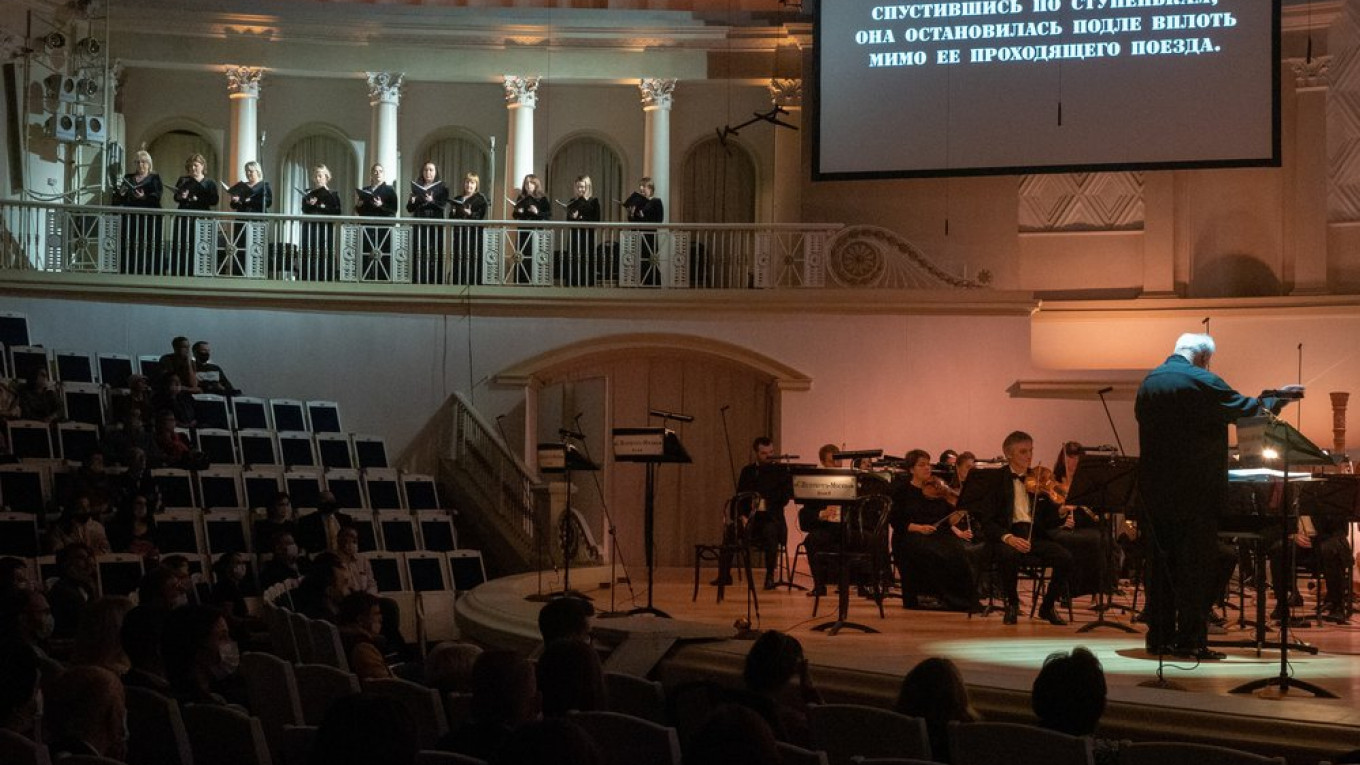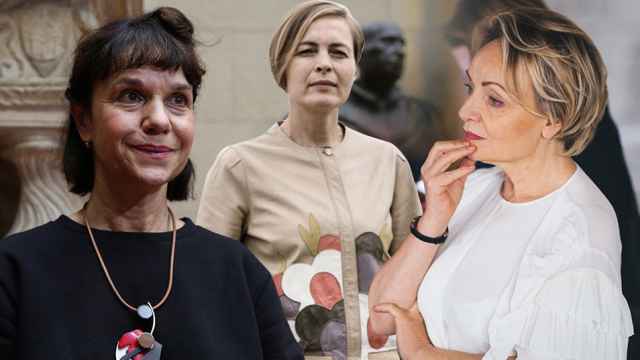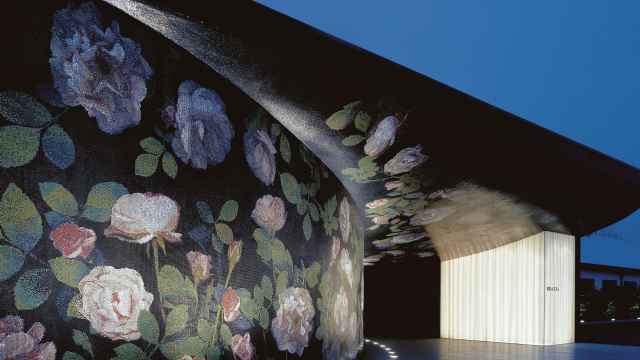When the pandemic hit Russia in the spring and the city went under an almost complete lockdown, communication and creativity did not stop.
Cultural institutions launched in record time a huge variety of online activities that were different but not always worse than in-house events. And they had one great advantage: they had a rapt and captive audience.
Theaters played to empty seats but enormous at-home audiences. From small plays to recorded large-scale performances and real time theater shows, everything is available online on mos.ru.
Concert halls were closed, but some performances continued to play to empty halls. The Tchaikovsky Concert Hall launched the All-Russian Virtual Concert Hall. Other musicians, both professional and amateur, began holding online performances in Zoom. Entire orchestras rehearsed or even held premieres online of classical or pop music, going viral on social media not only in Russia but also across the globe. And everyone stayed home and safe, musicians and audience alike.
Museums of all kinds, big and small, quickly launched online excursions, often led by curators, and lecture series. In many cases, art lovers could learn more this way than during individual walks about galleries. For example, the Tretyakov Gallery organized an online exhibition dedicated to the famous Russian painter Robert Falk. The curators also started a series of online lessons that bring insight into how artists have created their masterpieces, step-by-step.
Russian libraries have also opened their virtual doors, not only offering online readings, but also small theater plays and performances of classical literature. Some libraries introduced online lessons of etiquette and arts that became so popular they continued after the initial lockdown ended, along with master classes in writing poetry and prose, and even dancing.
And then there were strange and wonderful online projects that managed the impossible. Here are four of our favorites.
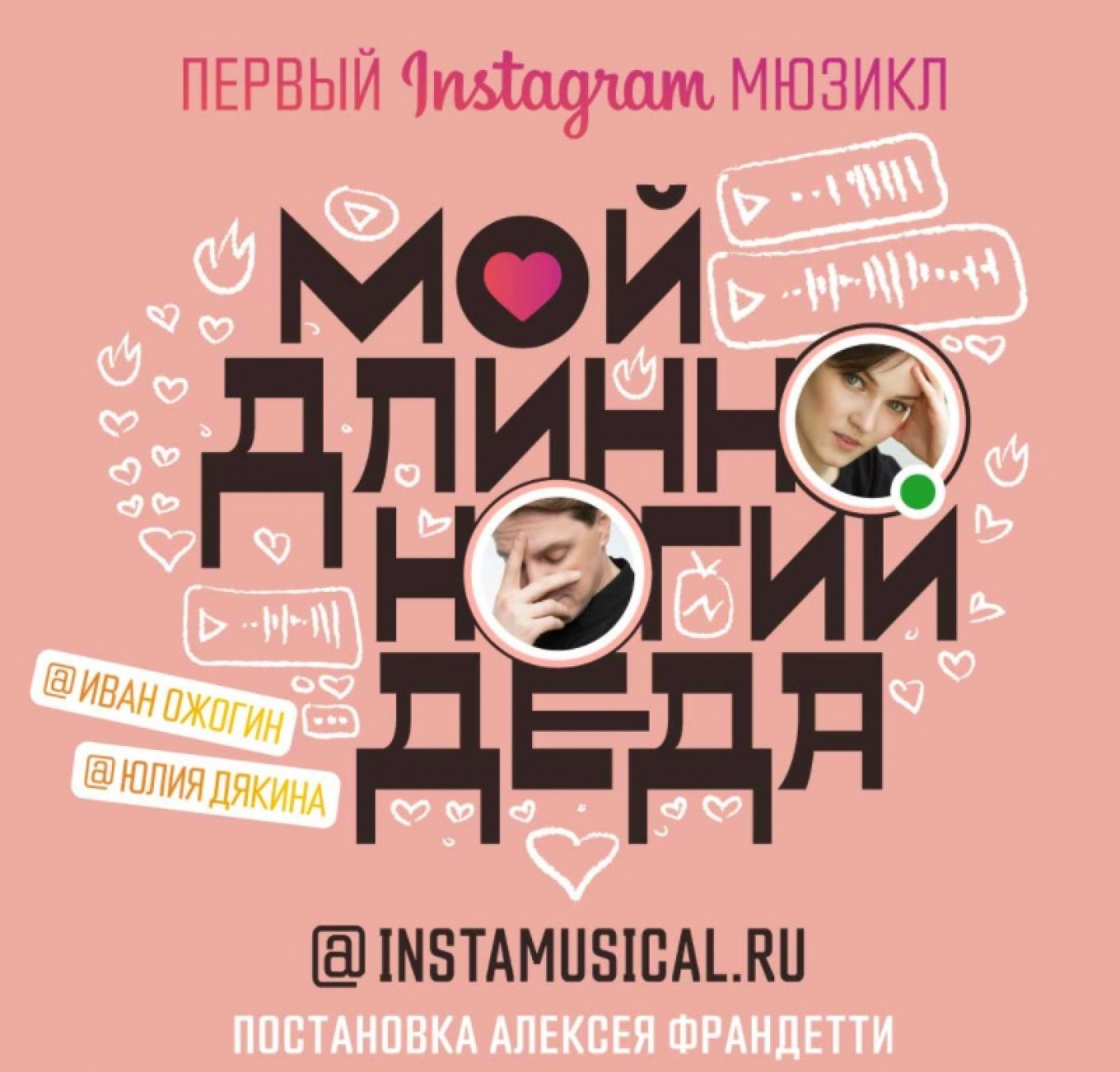
Instagram Musical
How about a musical on Instagram? The musical "Daddy Long Legs" is based on Jean Webster's 1912 book of the same name and is made up of letters of a young girl to her unknown benefactor. The musical was performed in Russian for the first time, and viewers from all over the world can watch it now. There are only two characters in the musical, Judy and Jarvis, played by Golden Mask award winners Ivan Ozhogin and Yulia Dyakina. They perform the musical separated by a distance of 700 kilometers: Julia lives in Moscow, and Ivan in St. Petersburg.
Minecraft "Cherry Orchard"
The St. Petersburg Tovstonogov Bolshoi Drama Theater adapted Anton Chekhov’s play “The Cherry Orchard” for… the video game Minecraft. Theater actors played and voiced their characters online in real time while moving Minecraft figures on a virtual stage. Players with the licensed version of the video game could also stroll online around the virtual halls of the Tovstonogov Bolshoi Drama Theater. This was the first of a unique series of Minecraft performances based on the Russian school literature program.
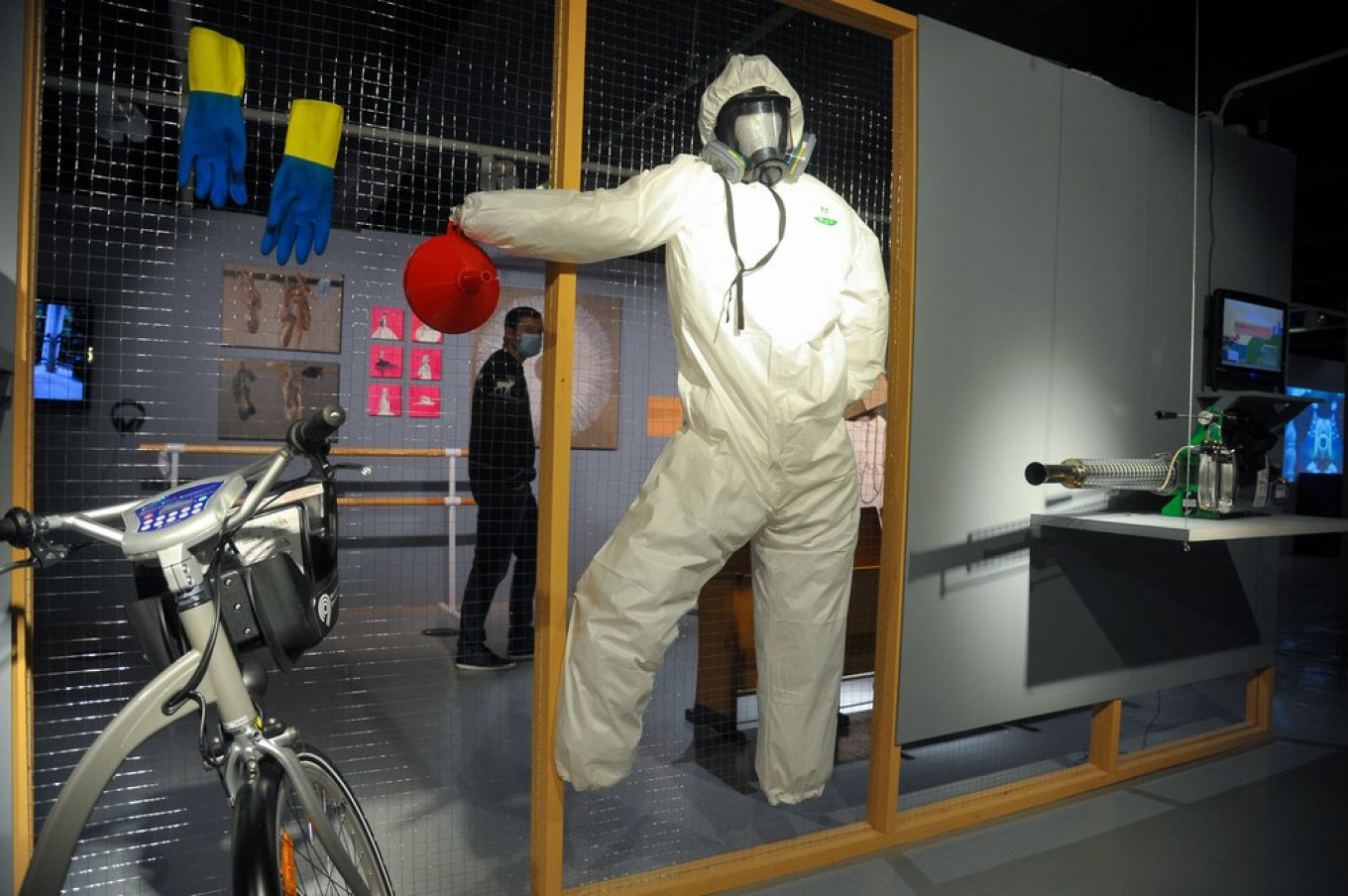
Museum of Self-Isolation
The Museum of Moscow and Triumph Gallery responded to the pandemic zeitgeist with a special exhibition dedicated to self-isolation. “We decided to record and preserve real stories and impressions — everything that happened to the city and its citizens” during this period, the curators said. Anyone can participate by sending in stories, art, or other objects that defined their self-isolation. They can be found on the museum’s website sorted by moods like joy, apathy, wonder and anxiety.
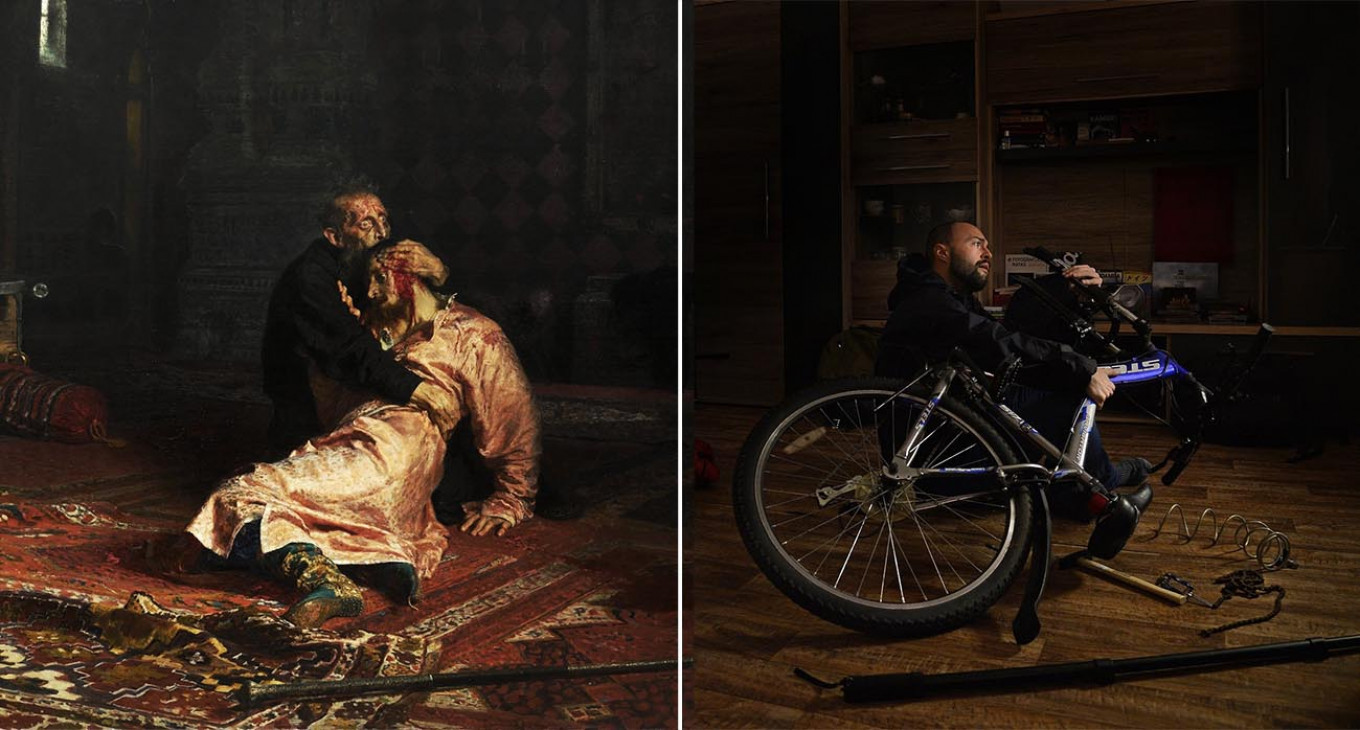
Artistic Isolation
After a few weeks of quarantine in city apartments with two or three generations, Russians had gone through books and online movies and began looking for something else. Yekaterina Brudnaya-Chelyadinova had the idea of copying famous art works at home, using only materials you already had available — and no photoshopping allowed. She founded a Facebook group called Artistic Isolation (playing on the abbreviations for school art classes and the word “isolation”).
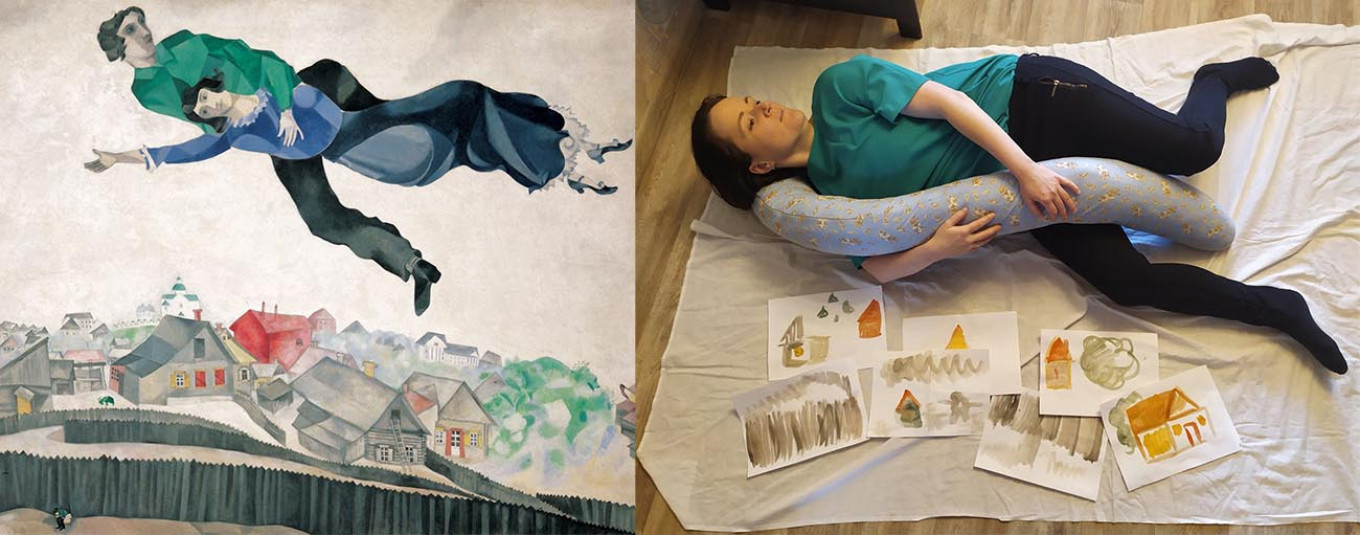
Now with almost 600,000 members, the group has used everything from pets to vegetables to create copies of paintings and sculptures. Even with isolation over, its members continue to create homemade masterpieces.
A Message from The Moscow Times:
Dear readers,
We are facing unprecedented challenges. Russia's Prosecutor General's Office has designated The Moscow Times as an "undesirable" organization, criminalizing our work and putting our staff at risk of prosecution. This follows our earlier unjust labeling as a "foreign agent."
These actions are direct attempts to silence independent journalism in Russia. The authorities claim our work "discredits the decisions of the Russian leadership." We see things differently: we strive to provide accurate, unbiased reporting on Russia.
We, the journalists of The Moscow Times, refuse to be silenced. But to continue our work, we need your help.
Your support, no matter how small, makes a world of difference. If you can, please support us monthly starting from just $2. It's quick to set up, and every contribution makes a significant impact.
By supporting The Moscow Times, you're defending open, independent journalism in the face of repression. Thank you for standing with us.
Remind me later.


